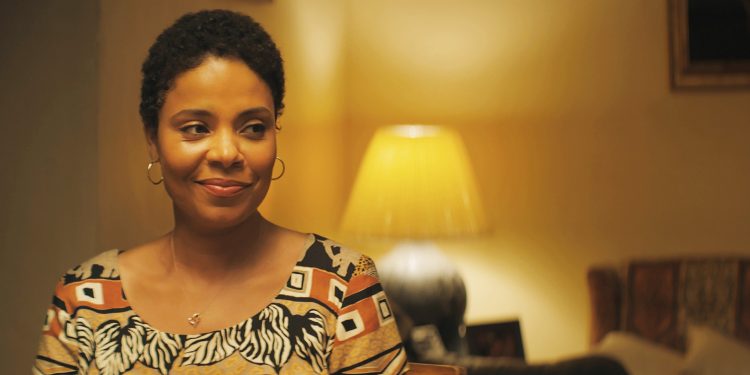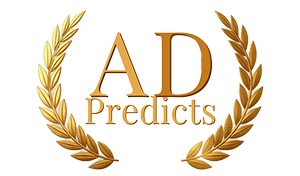Rashid Johnson and Sanaa Lathan both remember the first time they read Richard Wright’s Native Son, so much so that it left searing marks on both of them. Johnson – a conceptual artist, makes his directorial debut, lifting the words to screen in this adaptation screening tonight on HBO.
Bigger (Ashton Sanders) lives in Chicago, a young boy who wants to break stereotypes. He wants to achieve the American dream and aspires more in life. The movie transforms from page to screen for a more contemporary audience, but the themes of systemic injustice remain. I caught up with both Johnson and Lathan to talk about Native Son and the importance of telling Bigger’s story in 2019.
Native Son was mandatory reading and is. What does it mean to take on a classic book where we’re still talking about these issues decades later in 2019?
Rashid: It’s so interesting and so scary how relevant aspects of this story continue to be today. It’s a book that I read when I was 15. I remember being really challenged by the protagonist in several ways.
I’d never seen a character really explore with such honesty, his own fear. To deal with those kinds of issues around masculinity and fear were already fascinating to me. I’d never heard a man talk about being scared before and that stained my brain. That stayed with me to this day and that’s the genesis and what inspired me the most to tell this story – to think about both the relationship between 1939 and today and the things that have changed and the things that have not. Also, this more complicated exploration of anxiety and fear and existential angst that the character is challenged within this story.
Sanaa, what was your first introduction to the book?
I read it when I was 14 or 15 in Junior High School. It was one of those books that you read and it was in my consciousness all these years. As soon as the title came up and I got the script, there were some scenes in the book that were earth shattering and emotional for me and they came right up. That’s the power of Richard Wright’s writing in this devastating tale. It was right there with me and I was very intrigued by the fact that it was this iconic book talking about what it is to be black in America. I was really interested in seeing who this Rashid Johnson was because once I did my research and saw what a celebrated visual artist he was, I knew he had a vision and that’s what I feel a lot of directors lack, unfortunately. They lack vision and it seems like he’s going to have some vision because he works with his vision every day.
That and I had done plays of Suzann’s and all of those elements were so attractive to me and I was so thrilled to be on board.
I loved the mother character. She really cares and worries about her child. Her reality is so terrifying. What is it like to play a character of that today? And Rashid, talk about lifting her from the book to modern day where she’s still so very relatable.
Sanaa: I’m not a mother, but I have been a mother. I’ve mothered in many ways. The thing that drew me to her is she is every mother regardless of race. She is every mother who wants to ensure that their child survives and thrives. Specifically, she is a Black woman in America with a Black grown son. The reality of that, even in 2019 is it’s such a scary scene. Every time these boys walk out of the door, you don’t know what’s going to happen. In this particular society is that it’s not a safe space for us. I tapped into that.
It was so easy with Ashton. As soon as I met him – sometimes I think people cast people on an intuitive level, they don’t even know they’re doing it, but this has happened a lot where you have a real connection with the person. I think epople will cast you based on an intuitive level of chemistry. I had a lot of chemistry with Ashton in that respect. I immediately felt motherly towards him and you want to take care of him. We hit it off and he made my job easy in that respect and in terms of tapping into that.
Rashid: Translating from the book to the film was one of the things that we really thought through really carefully. In the book, she has less opportunity than what we explore. In the film, as the morning breaks, you see Trudy get up and on the wall is a portrait of Justice Sotomayor. She’s a legal aid and you get the sense that she has a vision and an ambition and an intellectual curiosity that we don’t as necessarily find as stimulating in the novel. She’s also still quite motherly where she squeezes orange juice for her children. She’s gotten them a fresh breakfast before she goes to work, but she’s obviously raising these children on her own. She’s responsible for them and she’s directing this orchestra from a really competent space. She’s a really quite sophisticated and thoughtful woman. She’s also very much a woman who’s excited about this relationship that she’s developing. She’s also using that as a vehicle to keep herself inspired. He sees so much potential in her and thinks she should go to law school and she’s flattered by that. She’s really rounded in a way and she’s not so much an archetype as maybe she was in the book. She has a life outside of her children and they’re very much the epicenter of her life.
Visually, it’s striking. His jacket speaks volumes and what his messages say. There’s so much we see before he says anything through them. Talk about the ideas in that.
Rashid: We wanted the ideas that Bigger has to enter the room as quickly as he enters the room. I think a lot of times there are expectations for what and how we’re to experience a young Black male and I think Bigger really doesn’t necessarily fulfill some of those stereotypes and ideas of what and how a Black man can be especially in this coming of age story. He’s really unexpected in a lot of ways. He doesn’t necessarily satisfy a status quo or a certain perspective. He’s living outside the lines that we’ve drawn for these types of characters. This film gives us the opportunity to explore a protagonist who didn’t necessarily fulfill expectations. The wardrobe on top of that was as much an opportunity to show how a web of ideas from bands such as The Clash and people who could interpret those signifiers could then begin to place Bigger in a different context.
The book was written in 1939 and he believes in the American dream and it’s his downfall and it’s 2019 and it’s still so necessary to tell this story. Talk about how you stay true to the book and how you bring it to contemporary audiences and that balancing act.
Rashid: What’s so interesting is having the book as a parallel. It creates a dichotomy with the film. We can look at the storytelling in 1939 and we can look at it through a contemporary lens and we have an opportunity to imagine what is the same and what is different.
One of the more challenging and complicated tellings are all of the things are the same. They’re all the same. The existential and psychological warfare that Bigger is having to negotiate and when we come to terms with the fact that these ideas and concerns are still present in the lives of a Black man in a coming of age story, especially one where the character has changed and evolved, it’s really frustrating and telling and it does a lot to expose who and how and where we are currently in the discourse.
How did you pull your casting together, dive into that a little for us?
Rashid: I thought about it and thought, “Who are the best actors?” I was given lists and who was available. I thought about Sanaa and who could play this young and ambitious woman. She was the most talented actor to be able to do it.
Ashton was a no brainer just physically and talent wise. Margaret was really just spot on. Bill, Elizabeth, Nick and David, honestly, it was luck meets a real sense of knowing what your story is and how you want to tell it.
Sanaa: Even though it’s his first time, he’s such an established visionary.
















